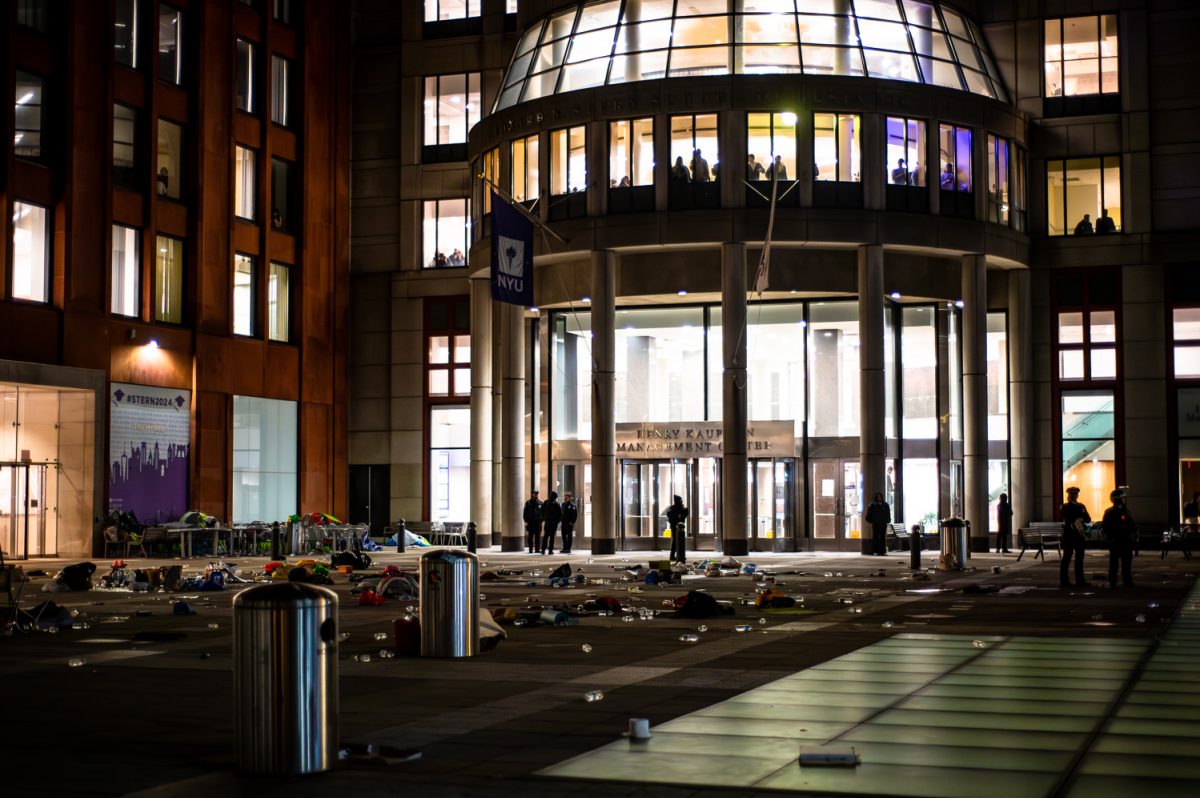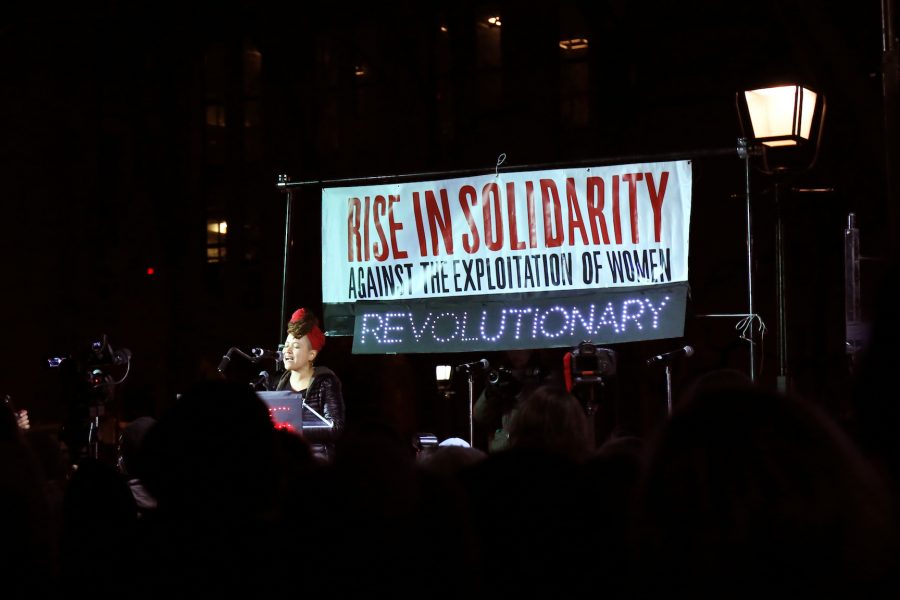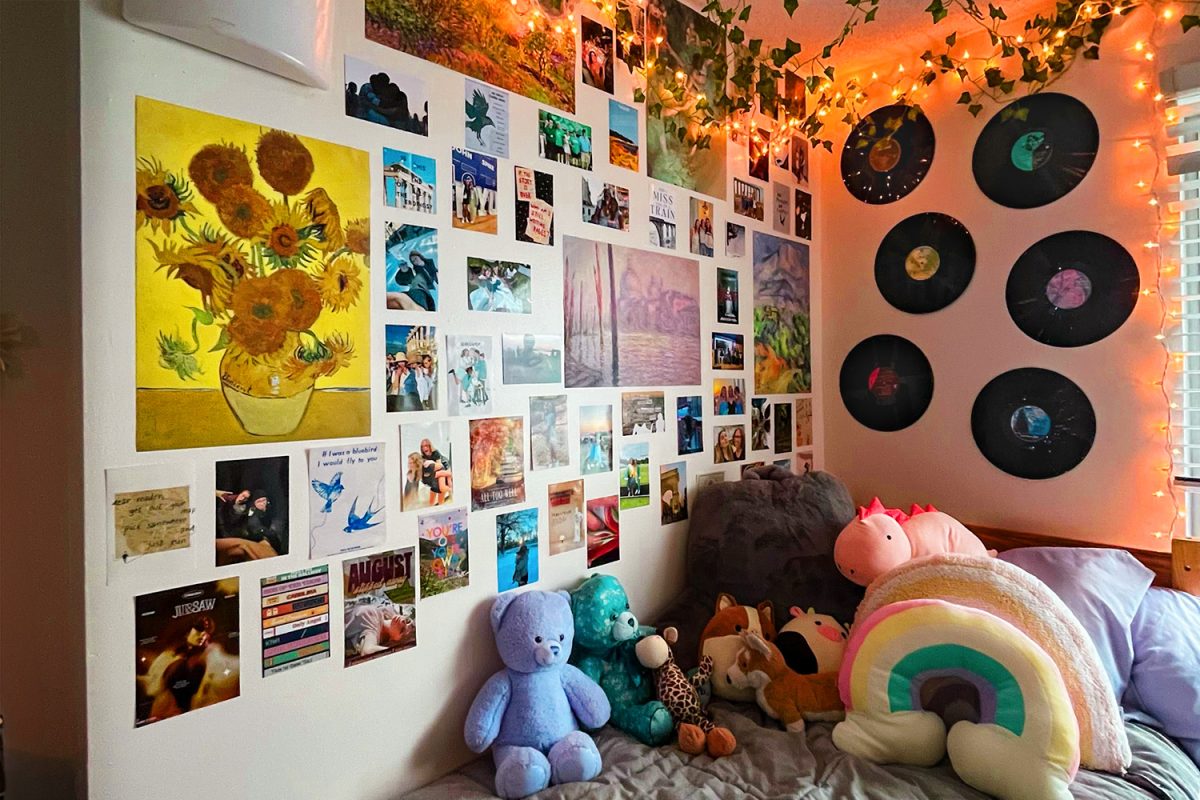Reviving Refugees: What Can Students Do to Help?
It is sometimes difficult, especially for students, to find proactive ways to help those in need. Some decide to show their support through protests, like the Artistic Uprising protest in Washington Square Park on February 14.
February 22, 2017
New York City — preceded only by its reputation and its promises of a better life — is a glittering beacon of multiculturalism and its siren song echoes to the fringes of the Earth. However, President Donald Trump recently signed an executive order that banned immigration from seven Muslim-majority countries. The ban has disrupted the flow of political refugees into New York City and has shattered the glass menagerie idealism of inclusivity and opportunity intrinsic to the city’s history.
Many students, such as LS freshman Riley Blake, have expressed a desire to give immigrants a warm welcome after the cold reception established by the ban.
“I really wish I could do more to get involved and show my support for the students affected by the ban,” Blake said. “I’m just not sure how to go about it.”
For students who would like to get involved, the NYU Islamic Center offers various volunteer opportunities for students. The center also hosts a group called the Muslim-Christian Dialogue that allows students to meet and discuss Christianity and Islam in an open, inclusive conversation. Students who want to get involved can donate to the International Refugee Assistance Project and can donate to Human Rights First.
Students also have been active in participating in and organizing protests in Washington Square Park and Union Square. Tisch freshman Mickey Galvin recently participated in the NYC Women’s March.
“[I loved] the spiritual aspect of being there together all working for a common goal,” Galvin said.
Galvin recounts feeling fiercely patriotic while protesting, explaining that the women marched to protect their country — rather than divide it — and were working to create an inclusive environment for subjugated minorities, refugees and immigrants.
Undergraduates aren’t the only ones getting involved in the controversy. NYU’s School of Law runs a chapter of the International Refugee Assistance Project through the Urban Justice Center, which provides legal assistance to refugees from Jordan, Syria, Lebanon and Iraq.
According to Project Chair Lamya Agarwala, the program matches law students with lawyers working pro bono to protect the rights of refugees facing deportation.
“I wanted to help channel the passion I felt and saw in my fellow advocates into legal services,” Agarwala said. “Philosophically, I feel that the way the United States treats people who are ‘not like us’ is most indicative of our value system.”
As many students look to their friends and neighbors for support during this trying political time, many refugees look to U.S. citizens to support and protect their right to escape political and religious persecution.
This article is the first in a three-part series about how the NYU Community has responded to the refugee crisis. Check out the next installment in the series tomorrow on nyunews.com.
Email Kate Holland at [email protected].











































































































































